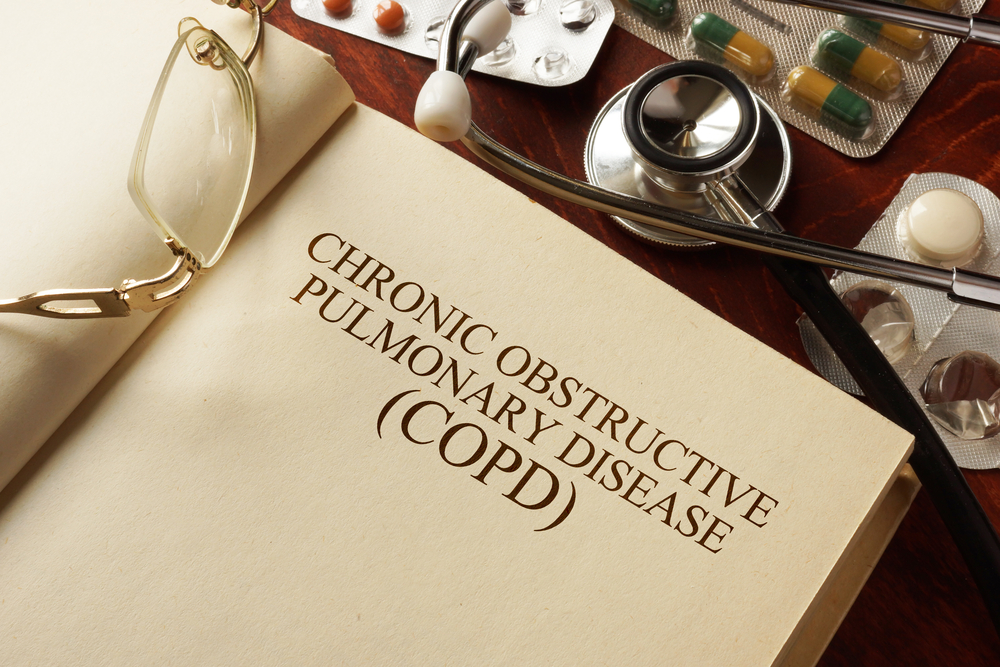Chronic Obstructive Pulmonary Disease (COPD) is a serious respiratory condition that currently affects over 12 million Americans—with another 12 million most likely suffering from it without knowing. That’s 24 million people afflicted with this troublesome condition that is now the third leading cause of death in America.¹ As the country faces this serious health challenge, it is important to understand and learn how to treat COPD.

Understanding COPD
COPD is a combination of different respiratory diseases—asthma, bronchitis, emphysema, allergies and more—and it leads to difficulty and sometimes impossibility breathing. The main cause of COPD is smoking, but it can also be caused by allergies, pollution and reaction to chemicals, fumes or smoke in the air.²
Unfortunately, COPD often gets worse as time goes by, and left untreated it can be life-threatening. The first symptoms often seem like nothing more than a common cough which is why so many people who have it may not realize it until it becomes more serious.
How Do I Know If I Have COPD?
The main symptoms of COPD are the following: shortness of breath, copious mucus especially dark yellow, green or bloody, frequent coughing and hacking, headaches in the morning when you get up, painful ankles that swell up from lack of oxygen, difficulty getting to sleep or staying asleep, being tired all the time, losing a lot of weight, and having a smaller appetite for no apparent reason.³ If you are experiencing a number of these symptoms there is no guarantee that it is COPD, but it likely means something is wrong and you are best off going to a doctor to get checked out.
If You Do Have COPD What Do You Do Next?
Being diagnosed with COPD is upsetting, but there are still plenty of options and ways to fight back against this disease. With the right care you can climb back from COPD and find the quality of life you enjoyed previously. Treatments can include diet and lifestyle changes, medication, rehabilitation, surgery, oxygen therapy, and more. Whatever road you choose, know that many people before you have succeeded in treating COPD and are having a good life in spite of it.
Natural Treatments For COPD
There are special, stronger medications and treatments for dealing with COPD, but it is also worth considering natural treatments. The first natural treatment for COPD is eating healthy food. Eating foods with high mineral and vitamin content as well as antioxidants will go a long way towards improving your overall health. Vegetables, fruits, nuts, fish, and chia seeds can all help as well. In addition, dietary supplements like ginseng and curcumin can be helpful in improving symptoms.⁴ Furthermore, red sage, magnesium, lemon, mint and eucalyptus are also worth investigating.⁵
A sedentary lifestyle will hurt those with COPD because mucus can build up in the lungs if they are not used to their capacity. By getting regular exercise, especially workouts that involve your cardiovascular system, such as walking, running, or riding a bike, you can strengthen your lungs and improve your respiratory endurance.
It’s worth noting that an estimated 40% of people who have COPD also have high levels of anxiety and depression. This often makes it more difficult to stop smoking or receive proper treatment. Exercise helps to increase the levels of endorphins in the brain, which can improve mood and reduce anxiety and depression. In turn, this may make it easier to stop smoking and seek treatment.
Quit Smoking
As the most common cause of COPD, smoking is the number one thing to eliminate from your life if you have been diagnosed. Unfortunately, as mentioned, around 40% of patients with COPD also suffer from anxiety or depression and smoking can often be a way to cope.⁶ Nonetheless, it is still possible to quit and it will go a long way toward alleviating COPD symptoms.
Drink A Lot
Drink a lot of water, that is. Making sure you drink enough water will help reduce the congestion and other symptoms of COPD. Accompanying this drinking with some moderate exercise is also a good idea, as is using a humidifier. Very dry air can hurt your lungs and make the symptoms of COPD worse, and a humidifier can help rectify that.⁷
[1] https://www.nhlbi.nih.gov/files/docs/public/lung/copd-atrisk.pdf
[2] https://www.mayoclinic.org/diseases-conditions/copd/symptoms-causes/syc-20353679
[3] https://www.healthline.com/health/copd
[4] https://www.ncbi.nlm.nih.gov/pmc/articles/PMC2783007/
[5] https://www.healthline.com/health/copd/herbs-supplements
[6] https://www.ncbi.nlm.nih.gov/pmc/articles/PMC2707161/
[7] https://copdnewstoday.com/2017/08/24/nine-copd-dos-and-donts-2/


